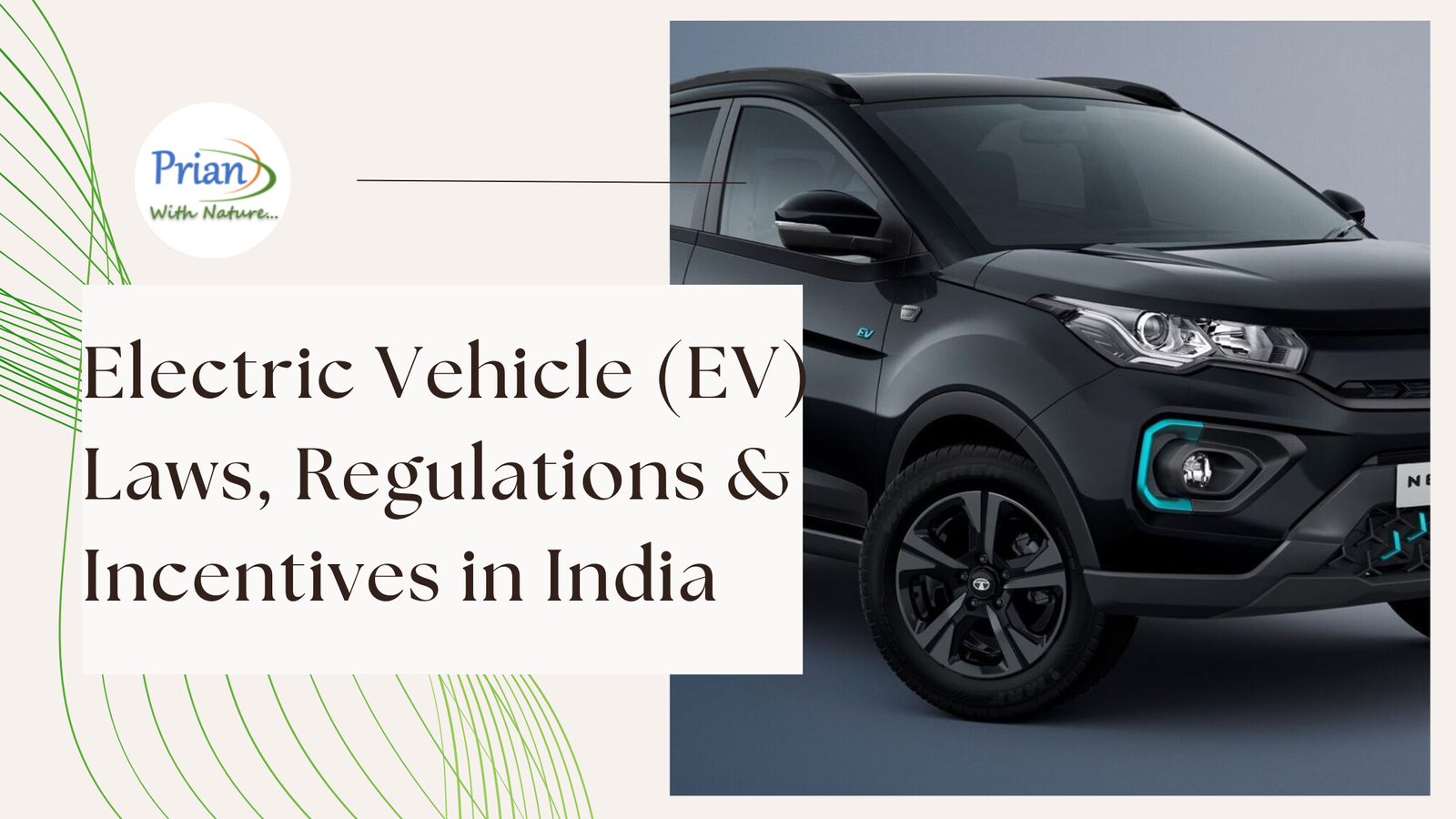Electric vehicles (EVs) are no longer the future—they are the present. If you’re an EV owner or planning to be one in India, you might wonder, “What is the government doing to support this transition?” Well, the answer is plenty.
The Government of India has been active in making policies, passing laws, and offering incentives that encourage people to adopt EVs.
In this article, we’ll take a closer look at the laws, incentives, and policies shaping the EV landscape in India.
We’ll also dive into recent events, including the Modi-Musk meeting and newly passed bills, that are driving India’s EV revolution.
Laws Surrounding Electric Vehicles in India
The government has been updating various rules and regulations to promote EV adoption.
Whether it’s environmental legislation, manufacturing standards, or tax exemptions, the legal framework around EVs is growing stronger.
Here are some important laws you should know about:
Motor Vehicles Rule (Amendment) Act, 2019 (Law of 1989)
This act is one of the most significant updates to India’s motor vehicle laws, covering several aspects of EVs.
It includes provisions for regulating licenses, vehicle registrations, and even exemptions for electric two-wheelers from mandatory insurance.
- Section 129 of the Act exempts electric two-wheelers with a top speed of less than 25 km/h from needing a license and registration. These low-speed electric vehicles are perfect for short city commutes and promote eco-friendly mobility.
Read the full Motor Vehicles (Amendment) Act, 2019
Central Motor Vehicles Rules, 1989
In its updated form, these rules regulate many aspects of electric vehicles, from their roadworthiness to battery disposal. Chapter VII of these rules specifically focuses on EV manufacturing standards. This ensures that EVs meet international safety requirements, crucial for their performance and reliability.
Read the Central Motor Vehicles Rules, 1989
Battery Waste Management Rules, 2022
EV batteries are large and complex.
To manage the waste from these batteries, the Ministry of Environment, Forest and Climate Change introduced the Battery Waste Management Rules, 2022. These rules govern how used batteries are to be disposed of or recycled, ensuring minimal environmental impact.
- Section 5 of these rules mandates that manufacturers set up collection centers for used EV batteries. This ensures a closed-loop recycling system, reducing the carbon footprint associated with EV battery waste.
Learn more about the Battery Waste Management Rules, 2022
Financial Incentives for EV Owners
When it comes to EVs, the Indian government has been pushing various financial incentives to make buying and owning an electric vehicle easier on the pocket. Let’s break down these incentives:
FAME India Scheme (Faster Adoption and Manufacturing of Hybrid and Electric Vehicles)
Launched in 2015, the FAME India Scheme is one of the biggest steps India has taken to promote electric mobility. The current FAME II phase aims to invest INR 10,000 crores to subsidize electric buses, two-wheelers, and public charging infrastructure.
- The scheme offers incentives of up to ₹15,000 per kWh for two-wheelers, with a maximum incentive of ₹55,000 per vehicle.
- The government has also set targets to subsidize 7,090 electric buses and establish 2,700 EV charging stations under FAME II.
Learn more about the FAME India Scheme
Income Tax Exemptions
Under Section 80EEB of the Income Tax Act, you can claim tax deductions of up to ₹1.5 lakh on the interest paid on loans taken to purchase electric vehicles. This is especially beneficial for those opting for high-end electric cars or commercial EVs.
Read Section 80EEB of the Income Tax Act
Goods and Services Tax (GST) Reduction
The GST on EVs has been slashed from 12% to 5%, making them more affordable. This reduction applies to both vehicles and EV chargers, further encouraging the transition to greener mobility.
Bills and Policies in the EV Space
India’s EV space is evolving quickly, and several recent bills and policies reflect the government’s intent to boost EV infrastructure and adoption.
The Draft National Electric Mobility Plan (NEMP) 2020
The National Electric Mobility Plan sets long-term goals for EV adoption, emphasizing local manufacturing, research and development, and the creation of skilled labor in the EV sector.
- The NEMP 2020 aims for 30% of India’s vehicles to be electric by 2030.
- It also encourages investments in battery manufacturing plants and charging infrastructure.
The Energy Conservation (Amendment) Bill, 2022
This bill mandates that both central and state governments encourage energy-efficient technologies, including electric vehicles. It also suggests stricter guidelines for fuel efficiency in cars, further boosting the market for EVs.
Know more about the Energy Conservation Bill, 2022
Delhi Electric Vehicle Policy 2020
While national policies are significant, local governments like Delhi have also played a vital role in promoting EV adoption. The Delhi Electric Vehicle Policy 2020 provides significant incentives for buyers of electric two-wheelers, four-wheelers, and commercial vehicles. It also focuses on expanding the charging infrastructure, with 100 new charging stations planned across Delhi.
Details on Delhi EV Policy 2020
Recent Developments: Modi-Musk Meeting and More
The EV space in India is also shaped by recent events and global collaborations.
One of the most talked-about moments recently was the meeting between Prime Minister Narendra Modi and Elon Musk, CEO of Tesla.

During their June 2023 meeting, they discussed Tesla’s potential entry into the Indian market, particularly focusing on manufacturing EVs and batteries in India.
- Elon Musk confirmed that Tesla will establish a production facility in India, helping lower the cost of Tesla EVs in the country. This is a significant development, as it would encourage more local manufacturing of EVs and parts, reducing reliance on imports.
Other exciting developments include the National Green Hydrogen Mission, which emphasizes using green hydrogen for energy, including electric vehicles.
This mission aims to make India a leader in green fuel technologies, creating synergy between EVs and hydrogen-based vehicles.
Read more on the National Hydrogen Mission
State-Level Incentives and Support
Apart from national policies, several state governments have their incentives to encourage EV purchases.
Maharashtra EV Policy
Maharashtra offers up to ₹5000 per kWh for electric two-wheelers, capped at ₹10,000 per vehicle. The state also provides additional benefits like waiving road tax and registration fees.
Tamil Nadu EV Policy 2019
Tamil Nadu, known for its automobile industry, has declared incentives for EV manufacturers, including a 100% exemption from electricity tax for EV-related projects. The state is quickly becoming a hub for EV and battery manufacturing.
Read more about this policy here.
Uttar Pradesh EV Manufacturing Policy 2022
This policy focuses on turning Uttar Pradesh into a leader in EV manufacturing. The state offers financial assistance to EV startups, subsidies for land acquisition, and other incentives to attract investors.
Learn more about Uttar Pradesh’s EV policies
EV Charging Infrastructure: Where Are We Headed?
One of the biggest challenges for EV owners is access to charging stations. The Government of India is addressing this with ambitious plans to expand the public charging infrastructure.
Private and Public Charging Stations
As part of the FAME II Scheme, the government has announced plans to install 2,700 charging stations across India. Meanwhile, many private players, like Tata Power and Reliance, are stepping up to establish EV charging grids in metro cities.
Charging At Home
The government also provides incentives for installing home charging stations, encouraging people to opt for AC charging points at their residences.
Related: Public vs Home EV Charging
Conclusion: What Does the Future Hold?
India is taking bold steps to become a global leader in electric vehicles.
From favorable laws and attractive incentives to collaborative efforts with industry giants like Tesla, the roadmap looks promising.
Whether you’re an EV owner, a potential buyer, or just someone interested in the future of mobility, it’s safe to say that electric vehicles are here to stay. With both state and central governments actively participating, India’s EV ecosystem is poised for tremendous growth.
If you’re considering going electric, now might be the perfect time to do it!


Leave a Reply